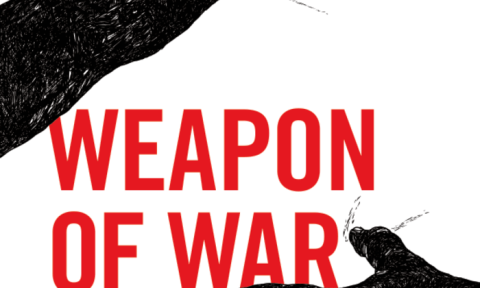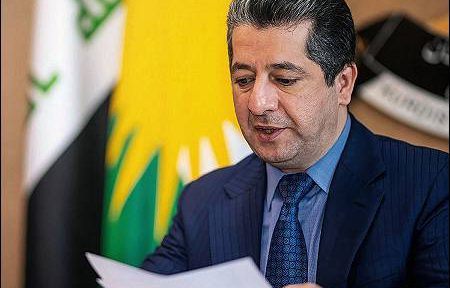As the Iranian Kurdistan Human Rights Watch (IKHRW) reports confirm by quoting local sources in Kurdistan province, Iran, some extremist and separatist groups active in the border areas of Iran, using the neighboring countries as a base for their destructive activities, continue to provide their armed men by deceiving and abducting the children while these groups do not answer to the victim children’s families about their fate.
However, the recruitment of the underage children as soldiers is a violation of international law and the Convention on the Children Rights and so subject to international criminal prosecution. All governments and armed groups should avoid recruiting the people under the age of 18 in their organizations under any circumstances. According to UN reports, this international law has not been much welcome by the armed groups all over the world. The IKHRW had previously reported on this tragic phenomen of the fate of children in Ney village, Mariwan, Iran, and publishes another case in the following report.
First story
A teenager namely Danesh Parvizi, son of Assad from Kamyaran, Iran, has been reported as missing since August 2013, and no information is available on his fate. Assad Parvizi told the IKHRW that “despite his poor financial situation, he had visited the Kurdistan Region and the camps of the armed groups in the Qandil Mountains twice, but they did not answer about the fate of his son and his possible being survival. Mr. Parvizi told our correspondent that “as soon as he arrived in the group’s camps in Qandil, they laughed at him while not giving a correct answer, they did not even allow him to meet his son”. This is while in legal systems, the killers are even allowed to visit their family members.
Assad Parvizi added: “My son, who had studied until the eighth grade, got acquainted with the members of the PJAK group accidentally in a garden near the village (near Kamyaran) in August 2013 and was deceived by them then suspiciously went to the mountains. As at that time, PJAK armed members sometimes entered illegally Iran, our family had no money to pursue this inhumane kidnapping by numerous visits to the Kurdistan Region. So I ask the government for financial and legal assistance.”
Second story
Seyyed Yasin Barkhoda, the son of Ms. Khadijeh Salehi, was also deceived at the age of 14 and transferred to the group’s camps. “Yassin’s father has died and I can not go to the Kurdistan Region alone and the group’s camps in the Qandil Mountains,” Ms. Salehi told the IKHRW. Only once my brother could go there, but they mistreated him violently and denied Yassin’s being thereI did a lot of efforts and borrowed money, we collected about 10 million tomans so that they could release Yassin in return, but we have not got any results yet.”
Regarding the time of her son’s disappearance in the armed groups, Ms. Salehi added: “Five years ago, when he was 14 years old, he went missing suspiciously, and as the local news confirmed, we are sure that he was deceived and was present at the group’s camps. We even suspect of some people who have deceived and handed him to armed gang members somewhere outside the city. My son had studied until the eleventh grade and we do not know anything on his fate now. He should have gone to school, not to join an armed group. I’am just waiting for help”.
It is worth mentioning that the IKHRW follows the fate of the Iranian Kurdish soldier children in a completely serious and legal manner and without any political tendency, and will soon publish documentary reports on the fate of other abducted underages.
A non-return way: the story of four Kurdish children’s abduction and deception by the PJAK terrorist group
Apart from making insecurity and hitting economic opportunities and creating obstacles for investment, the terrorist groups have imposed another problem on Iran’s border residents for years. To provide their armed men need, these groups meet the children of border families and deceive or abduct them by various methods such as false promises and deception, threats and intimidation or using force. Underage children both girls and boys, as defined by UNICEF as children, without enough information about the harsh living conditions in the group’s camps and its oppressive conditions, arrive in Qandil Mountains, hoping for making false promises on a better life.
Seyed Yasin Barkhoda
Seyed Yasin Barkhoda is one of the underage children abducted by PJAK at the age of 17 and his family has no news of him for the last six years. Yassin was in the ninth grade of school when he was abducted by PJAK. Yassin lost his father as a result of a heart disease and lived with his grandfather. Perhaps, if Yassin’s father was alive, he could have protected Yassin against his abduction by PJAK.
Despite economic difficulties, Khadijeh, Yassin’s mother, travelled to Qandil Mountains to save her only son, but could not even meet him. Khadijeh says that “at first, they denied the presence of her son in Qandil, but in the end, at her insistence, they told her that her son was studying somewhere far away. They treated Khadijeh very badly and even told her that she did not have the right to meet her son. Khadijeh says that she insistened, but they threatened and asked her not to follow to meet her son even for once.”
When Khadijeh talks about Yassin, she says that “he was a clever boy and had good marks at school”. She adds “Yassin wanted to become a heart surgeon and thus prevent the people like his father from dying of heart attack”.
Khadijeh has almost no hope of her child to return, as she has seen many mothers like herself over the years, mothers who, despite constant efforts, have never been able to meet their children and have only heard the news of their children’s death; not even their corpses.
Over the years, mothers like Khadijeh, who have financial problems, have repeatedly traveled the difficult routes to Qandil Mountains near the entrance to PJAK/PKK camps, but have never been able to meet their children. Many of these children are sent to Syria and Turkey by PKK/PJAK commanders to fight, and are killed for not being familiar with military techniques. It seems that these children must die so that the PKK/PJAK could prove their presence in these wars.
Aboobakr Mohammadi
Aboobakr is the son of Ahmad Mohammadi, a 19-year-old deceived by PJAK and transferred to the group’s headquarters. Since Aboobakr had never spoken about these groups before leaving, his parents did not even know why Aboobakr did not return home for a long time! As two other people went to PJAK camps with him, Aboobakr’s father’s contacted with the parents of the other two teenagers, this proved that his son also had gone to PJAK camps in Qandil.
Aboobakr’s father, like the other parents and following the parents of the two teenagers, has visited Qandil, and he has been mistreated by the group. Answering to Aboobakr’s father, PJAK, first, denied Aboobakr’s presence in the group, but after Aboobakr’s father insisted, he was told his son was under training at one of the group’s camps and that it was not possible to meet him.
Aboobakr’s father says that once every three months, at the insistence of Aboobakr’s mother, he goes to Qandil and so far has received nothing other than disrespect from PJAK. Aboobakr’s father says that his son was a computer engineering student and different from those living in the mountains, who “act like animals”.
The two teenagers deceived with Aboobakr managed to escape the PJAK, but Aboobakr is still trapped in the group, not knowing that his mother died while waiting for seeing her son again.
Now Aboobakr’s father has almost lost hope of his return and says he wishes to see Aboobakr only one more time and inform him of his mother’s death, but he is afraid that one day he will hear the news of his son’s death. News of a death that usually does not end with the delivery of the body!
Parviz Danesh
Danesh Parvizi, son of Assad, is another child soldier from Kamyaran. He was only 16 years old at the time of his abduction by PJAK. His father says that some border areas and Shaho and Horaman areas have become activity field for this terrorist group. Mr. Parvizi says members of the group sometimes come down the areas near the mountains and extort the farmers, industry activists and all those doing business there.
Assad says that his son was a clever student and wanted to become a nurse in future, but PJAK deceived Danesh Parvizi and repalced his and his family’s wishes by a gun through living in the Qandil Mountains.
Assad and his wife visited PJAK camps once and not only was he disrespected, even two women members of PJAK beat his wife. Assad says that PJAK’s claim of supporting the Kurdish people is not true at all, as all what the Kurds have gained from this terrorist group is insecurity, coercion, kidnapping and killing their children.
Zanyar Noori
Zanyar Noori, 17, is another child soldier from Saqez, Iran, who was abducted by this terrorist group.
Mohammad Amin Noori, Zanyar’s father, like many other fathers, has tried many times to return his son. He has been in an unknown location at a PJAK base for several years now, and like all other children who are deceived in the same way for joining the PKK/PJAK, he can neither return nor visit his family.
Zanyar’s father, like other parents whose children are kidnapped by this group, has visited PJAK camps in Qandil Mountains with great difficulty by spending much money. As other parents, not only has he not been given a minute to meet his son, but they did not even give him accurate information on his condition or where he was staying.
Zanyar’s father says that “in a meeting with the leaders of this group, I met people whom I knew before and I was aware of their evil background” Khal Aminpour is one of these people who, according to Zanyar’s father, had a history of theft, drug trafficking, extortion and sexual abuse in Sanandaj. After committing various crimes, he has fled the country and joined PJAK.
Like other parents of the victim child soldiers, Zanyar’s father has faced insults from members of the group when he asked for meeting his son in order to bring him back. Zanyar’s father says that one of the PJAK leaders punched and kicked him, so is is the fate of all parents who try to meet and bring their children back.
Yasin, Aboobakr, Danesh and Zanyar are just four examples of children whose future and lives are being destroyed by PJAK. These children live in depressing conditions in the Qandil Mountains, and miss their parents every day while thinking about their future, a bright future they could have at school and university, but destroyed by the PJAK by hiding in the heart of the mountains and exposing Iranian children lives to bullets and danger.
The children and adolescents who are now living in the group’s deplorable conditions have had no hope of returning home for years, but in the meantime, some who are brave, hoping to see their families again, face the high risk of escaping the PJAK camps, although just few people have a chance to escape. Those who escape but do not succeed, are detained in the most difficult conditions in the group’s prisons for a long time or are shot dead. The high and impassable mountain routes are also one of the obstacles to reach Iran.
It seems that the most important way to save these children and other people who are victims to the group’s violence is the involvement of international organizations or the related countries against the activities and free movement of these terrorists.










